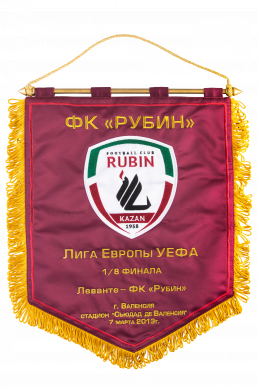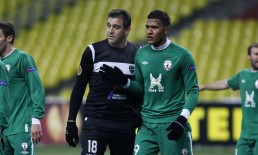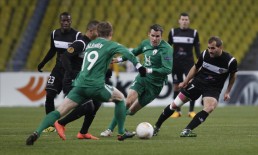The Moscow sky was weeping in metaphorical fashion when Ballesteros picked up a loose ball from the Rubin Kazan rearguard. The captain did not hesitate too much in the resolution he decided to adopt. The centre-back used the element of surprise to launch a howitzer that came close to catching the home keeper out. The ball crashed into the keeper’s hands and went over the crossbar of the Russian team’s goal. It was the twilight of Levante’s remarkable Europa League adventure. Dyadyun’s goal immediately sounded like a requiem.
Earlier, Rondón managed to sneak into the heart of Keylor Navas’s area to undo the Gordian knot of a game in which two teams overprotected their domains. The Venezuelan striker teamed up with Natxo to break up a duel that had already consummated the regulation ninety minutes to go into the extra time that marks the development of the extra time. Levante fell exhausted.
The players left the Luznhiki Stadium with a painful feeling as the gaps between the two sides were small on aggregate over the two games. Rubin Kazan never exerted a commanding superiority. That aspect makes the defeat all the more sad and upsetting. In perspective, perhaps the events at the Ciutat de València just a week earlier will remain in the memory, and not in a fleeting way.
Rubin faced European exile in Moscow. The mythical Luzhniki was a desert with just over a thousand fans in the stands. Levante did not have too much trouble containing their opponents’ Levantine eagerness. Levante had their moment in the final minutes of the match, although they lacked decisiveness and forcefulness in the final metres. Rubén put fear into the hearts of the few home fans and Iborra had one of the clearest chances after finishing off a throw-in taken by Juanfran. Levante lost at the Luzhniki Stadium in only their second game in the Old Continent after setting their boots on the ground in 12 matches, starting from the last preliminary round at Motherwell.


